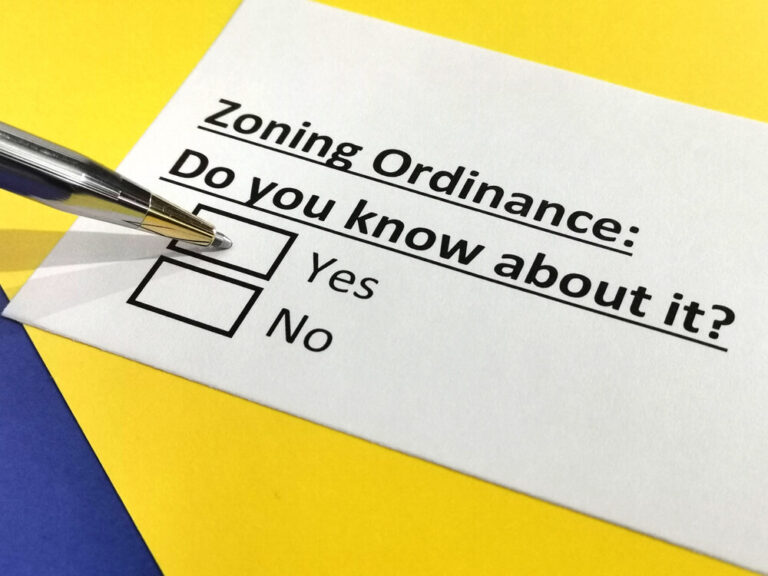The Ultimate Guide to Starting a Business in Nevada
There are many factors to consider when starting up a small business. These include legal, licensing, intellectual property, financing, and more.
When creating a small business, your preparation leads to success. Being prepared can lead to unknown success.
You may find yourself in need of some help starting a small business. Luckily, we are here to help. There are several steps to take when starting a company to ensure success.
Below is our “starting a new business checklist” to help you start a successful small business.
Think of this as starting a business 101.

Make Sure You Have the Right Licenses
When starting a business, the first thing to do is make sure you have the proper licenses. Not having the correct documentation for your business can stop you before starting.
States, cities, and counties may vary on what licenses you need. Make sure to do your research and check your local Small Business Bureau to ensure you have what you need.
A shortlist of licenses that you will need for your business includes:
- Basic business operation license
- Federal Employer Identification Number (EIN)
- Fictitious business name permit
- Zoning and land permits
- Health department permits
- Sales tax license
- Fire department permits
- Special state-issued business licenses or permits (to sell certain goods)
- Special State-Issued Occupational/Professional Licenses (depending on certain professions)
- Special Federal Business Licenses or Permits
Pick a Name
Every business needs a name, and your small business is no different. This chore requires a bit of work as you need to make sure that no other company has that unique name.
A simple Google search can usually help you determine if a business name is available. Your state business filing agency will have tools you can use to see if anyone else is using the name in your area.
Protect the Business Name
Once you have picked your business name, the next step is to protect it. Doing this step will build your brand and give you control over how the name of your business gets used.
There are a few steps to protecting your business name:
- Trademark your business name and logo
- Register your domain name
- Use your brand
- Track your brand
- Deal with infringement immediately

Use a Fictitious Name
Once you have come up with your business name, you will need to register it with the state. Your DBA (doing business as) will be your fictitious name, trade name, or assumed name. It is what you will be registering with the local, state, and federal agencies.
A fictitious name puts on record who is behind the business name. It lets the public know who they are doing business with and what type of business you own.
Some things to keep in mind when creating your fictitious name are:
- Consider the impression you want the character to make on customers
- Keep it simple (easy to pronounce, spell, and remember)
- Steer clear of language and cultural taboos
Come Up with a Solid Marketing Plan
When starting a small business, it’s important to remember how vital marketing is to your growth. You have to make people aware of what you offer to grow your business. You also need to ensure that your name is getting in front of the right people.
You need to have a specific plan in mind when marketing your business. This plan will keep you focused and guide the other aspects of your business.
Some steps you want to keep in mind when creating your marketing plan include:
- Prepare a mission statement
- List and describe the target or niche markets.
- Describe your services.
- Spell out your marketing strategies.
- Identify and understand the competition.
- Establish quantifiable marketing goals.
- Watch your results.
Make Sure You Have Employment Contracts
When building your workforce, you need to have employment contracts. This precaution gives you protection if there is a dispute with an employee. A business attorney can aid in making sure you have all the proper language in place.
It is also a good idea to have an employee handbook. Once hired, each employee should receive a physical copy of this document to use as a reference.
Creating offer letters is also an excellent way to set out terms of employment. This letter does not bind a potential employee to accept the job.
Instead, it lays out:
- pay,
- responsibilities,
- and other applicable information about the job before they take it.
What You Should Know about Non-Compete Agreements
An NCA prevents an employee from using what they learned from you to work for your competition. This fact is why many companies have non-compete agreements. These agreements can limit how a former employee can apply within a given industry.
Here are a few guidelines to keep in mind:
- Make clear how long the agreement lasts after leaving the company
- What are the consequences of a breach?
- What is the scope of the agreement?
- What is the geographical limit that an employee gets restricted to after leaving

Lease Space if Needed
When it comes to the physical space for your business, you will want to lease your building or offices. This step will allow you to move or expand if needed. You will also not be on the hook for owning a space if things do not work out the way you plan.
There are a few things to keep in mind when you lease a workspace:
- What does the lease include?
- What are the lease renewal terms?
- How does the lease handle improvements
- What kind of commercial property insurance do you need?
Get Insurance - Liability, Worker's Compensation, E&O, Premises Coverage
As a business owner, you need insurance. You cannot overlook this expense. In the event of an unforeseen happening, you will be grateful to have this coverage. An umbrella policy covers many types of insurance. It is handy as it includes different types of coverage and often will save you money.
Liability insurance protects you and your business in the event of:
- physical harm,
- medical payments,
- advertising injuries, and much more.
If someone gets injured on your property or via your product, this insurance helps ease any financial burden on your business.
If an employee gets injured at your work, worker’s compensation coverage will help you to avoid paying out of pocket to pay that employee.
E&O (errors and omissions) is a type of business liability insurance.
It protects:
- companies,
- their employees,
- and other professionals from claims of inadequate work or negligent actions.
This coverage covers liability that pays for harm or property damage made against your business. This loss may arise from negligence or maintenance problems on your premises.
Insurance can save you and your business lots of money in the long run. Insurance can help protect you from costly lawsuits and other litigation. Find a trusted business attorney to help you get the proper coverage for your business.
Get a Website
A website is one of the best ways to connect with new clients and attract business. You can hire someone to create your site for you.
Even if you are not ready to get your website up and running yet, you should register a domain name. You can do so for a few hundred dollars, and you will have legal possession of that site. Your domain name should match your business name, so make sure it is available.
Get a Bank Account
You may have heard the phrase “keep your business life and personal life separate.” This wisdom is true for how you spend your time and how you spend your money. A business bank account helps in liability protection and getting lines of credit.
Having a business bank account keeps your spending disconnected from business spending. You also will need business checks so that you do not need to rely on cash or debit.
Get an EIN
If you want to keep your business running, you must pay your taxes. Plus, make sure that your employees have the proper deductions as well.
You will need to apply for an employer identification number (EIN) with the IRS. This number identifies you as an employer or business owner with no employees. Your number helps the IRS identify taxpayers who must pay various tax forms.
Get a Business Line of Credit
While wisdom says you want to avoid incurring debts, you may need some help getting started. With a business bank account, you will open a business line of credit. The key is only to use the business credit for short-term expenses. You can also have a business credit card for quick short-term purchases.
Start a Business From Home
If you have a home-based business, you will still need all the required licenses and permits. Think of your home as the brick-and-mortar of an online shop.
You also want to be aware of home office deductions and tax benefits. Anything you use to conduct business should get claimed on your taxes. This step can be a significant return on your investment later on.
Register your Business
You will need to register your business with your Secretary of State. This registration will ensure that you pay all required state taxes and fees. These forms are on your state government websites.

Check County Licensing
You must also license your business with your local county clerk’s office. This licensing holds your company liable for its actions and behavior. It also protects the public’s health and safety.
You will need any required professional licenses to show your level of expertise. If you plan to sell goods and services, you will also need a sales tax license to do business in your local community.
City Licensing
If you plan to do business within the city limits of your community, you will need a company license for your city. A basic business license allows you to do business and collect receipts inside there.
Certain businesses, such as restaurants, will need specific local licenses and permits. You need to ensure that your business is up to local codes and statutes.
Create a Business Plan
When you begin your small business, remember that you need to go in with a plan. There are several elements that every successful small business plan incorporates.
- Executive Summary.
- Company Description.
- Market analysis.
- Organization and Structure.
- Marketing and Sales.
- Funding Request.
- Financial Projection.
- Appendix.
- Special Permits for Certain Businesses like Childcare, Eldercare, Restaurants, etc.
Certain businesses need special permits by local, state, and federal law. You may need a liquor license and food and safety inspections for businesses like restaurants.
Companies that provide childcare or eldercare may need:
- specific equipment,
- codes,
- or training of employees.
It is crucial to make sure you are compliant with all laws and statutes for your business. Not doing so could lead to fines or the closing of your business.
Raising Capital for Your Business
Unless you win the lottery or are wealthy, you will need some startup capital to get your business going. This money can help cover initial costs and operations until you begin to profit.
There are several tried and true strategies that help to raise capital for your business.
- Bootstrapping. You are pulling together your resources and finances.
- Family donations. Crowdfunding from family and friends can help generate capital and avoid debt-funding outlets.
- Government grants. Depending on what type of business you are starting, you might receive grants.
- Business loans. Many banks and government institutions will provide business loans that need to repay.
- Crowdfunding. A site like Kickstarter can help teach interested parties who support your project.
- Angel Investors and Venture Capitalists. Wealthy individuals may invest in small businesses for a return on their investment.
Patent Your Ideas
If you have a new and innovative product, process, or concept, you need to protect it. To do so, you need to create a patent.
You can register your patent with the US patent office. Once you receive your patent, it works as a legal license that gives the owner rights to that concept or product. You control the production, sale, and use of that product.
Trademark
Your trademark is a recognized symbol or design that gets associated with your brand. If you have a distinctive logo or design, you must file for a trademark.
Having a trademark allows you to control how that design and logo get used. It also allows you to take legal action if someone tries to use your design without your permission.
Copyright
Much like a trademark, copyright protects your intellectual property. This safeguard can pertain to a work of art, music, written works, and any other creative product. Copyright means that you hold the right to the copy and production of a product.
Anyone who wants to buy, use, or reproduce your copyrighted product, needs permission. Not doing so can allow you to seek legal action to protect your property.
Consider Government Contracting
Government organizations often look for small businesses to provide government contracting work. These relationships can be beneficial and create more customers for your business.
Some benefits of government contracting include:
- Consistent Pay
- Strengthening of Company Value
- Ability to Find More Opportunities
- Advantages of Female- and Minority-owned Businesses
Pick a Business Structure - LLC, Corporation, Sole Proprietorship
Make sure to choose the proper business structure for you. The three main types are LLC, Corporation, and sole proprietorships. Each of these structures has its advantages and disadvantages.
- LLC. A limited liability company means that members are not liable for the company’s actions. It also allows for flexible management, easy upkeep and operations, and self-employment taxes. There can be consequences for membership turnover.
- Corporation. Corporations allow for liability protection, business security, and easier access to capital.
- Sole proprietorship. You control your business. You have control of who and how many people you hire. They are easy to establish, and you have ownership of the name. Plus, you get complete control, and it can be a stepping stone to incorporation.
Pick a Registered Agent
You need to declare a registered agent, and their job is essential in keeping your business legal. Their primary job is to receive legal documents and notices for your offices. While they get often seen as a legal formality, a registered agent is integral to any business.
Several businesses provide this service. You may also look to hire a registered agent as an employee.
Network
One of the best ways to build your small business is networking. You need to develop business ties that can help you generate leads for new clients and customers.
When possible, attend trade shows to build relationships with others in your field. Networking can also help you to foster a mentoring relationship with others. Many successful business people love to mentor and share their knowledge. Such connections help ensure their industry stays strong after leaving the field.
Zoning Ordinances
Zoning ordinances determine how land in a specific geographic location gets used. These ordinances are often in place for the safety and health of the public. Some businesses may not be safe in particular areas as they would be in others.
Local laws may also say specific trades cannot be near other companies or entities. For instance, some communities may not allow a liquor store across the street from a church or school.

Know Immigration Laws When Hiring Workers
When hiring immigrant workers, you need to know the rules of immigration law. You can ask potential employees if they have the legal right to work in the United States or need a sponsored visa. If you are not compliant with immigration law, you can face harsh penalties.
No laws say that undocumented immigrants cannot start their own contractor business. A workaround to this is if they are an independent contractor. It also protects business wonders, as they are not required to ask about a contractor’s status.
Payroll Systems
You need to make sure that you pay your employees in full and on time. They rely on you to make any required deductions for taxes, insurance, etc.
Hire a skilled accountant to take care of payroll. Utilizing software like QuickBooks helps track:
- employee pay
- invoices,
- accounts receivable,
- and monitoring income.
HR Systems
Human resources ensure that you have a safe and fair workplace. You will need some human resources system in place.
It may be a specific hire or outsourced from an HR firm.
Health Insurance
If you have more than 50 employees in your business, you will need to provide them with health insurance. But, even if you have fewer employees, offering an insurance plan benefits them.
OSHA
OSHA is the Occupational Safety and Health Association. It is the governing body when it comes to workplace safety. OSHA conducts inspections of businesses to ensure compliance with all statutes and ordinances.
You should make yourself familiar with all OSHA guidelines for your industry. If you violate any of these guidelines, you may face fines or even closure of your business.
Establish a COVID-19 Policy
With Covid 19, you should establish a policy to protect employees and customers. This precaution may include masks, sanitizer, and social distancing. You may also ask employees to test before coming into work.
You should check with local laws to ensure you are in company for your location and industry.
Join a Union
Does your industry have a local union? If so, you may want to investigate joining. Unions protect employees and helps build relationships with others in your field.
Some professions and locations may also need union membership. Make sure to look into the benefits of union membership for your field. Not joining a union can cause issues, including loss of clients and employees.
Watch a YouTube Video of Someone Starting In The Same Field
Sometimes the best way to get inspired to start a new business is to see someone else who is beginning. Find YouTube videos related to your niche and follow others recording their journey.
Watching someone else can help you learn from their journey and may inspire and motivate you as well. Often, knowing that we are not alone in starting our own small business can motivate us to keep going.
Watch a YouTube Video of Someone Established and Thriving In The Same Field
Whenever you get frustrated, look towards those who have made it in your niche. Many of these successful people will share tips on how they did it. Find a YouTube video and learn from their success.
Watch a YouTube Video of Someone Who Has Attempted and Failed In The Same Field
Fear of failure can hinder your ability to achieve your dreams. You have attempted something, and it failed. Guess what? You are likely in good company!
Every problem has a solution, and sometimes it is as important to know what doesn’t work as it is to know what does. Find videos of someone who has failed in your field. Likely they will be able to show what they did wrong so that you can learn from their mistakes.
Create A Calendar With Deadlines To Get To Actualization
One of the best ways to keep you and your business on track is to give yourself deadlines. Have either a physical calendar or an online calendar to keep you on track and motivated.
Also, put in your calendar planned vacations. You need to be able to create a life/work balance. Have someone you trust in your company that can run things while you get away for a little while. You will come back energized and motivated to keep working.
It will energize you when you see yourself getting closer to reaching your goal! Remember, set small goals that will build up to your final destination.
In Summary
Owning a small business is the dream for many people. This guide provides you with a jumping-off point to get your business started. These tips will help you get set up for success.

Frequently Asked Questions
What is a business idea?
A business idea is the spark that ignites a potential venture. It’s a concept for a product or service that has the potential to turn into a profitable business. This idea often arises from identifying a market need, crafting a plan to address it, and then launching a successful venture.
Who are potential customers?
Potential customers are individuals or groups who have a need or desire that your product or service can fulfill. These are the people you aim to reach and engage with your business offerings.
How do I make my business successful?
Success in business requires careful planning, goal setting, and execution. To make your business successful, you need to develop a comprehensive plan outlining your goals, strategies, and tactics. You must also market your product or service to raise awareness and attract customers. Building strong customer relationships is essential for fostering loyalty and repeat business. Additionally, continuously assessing and adapting to changes and challenges in the market is crucial.
What types of legal structures can I choose for my business?
Several legal structures are available, each with its own implications and benefits. These include sole proprietorship, partnership, limited liability company (LLC), and corporation. Choosing the right structure depends on factors like liability, taxation, and management preferences.
Further Reading
Here are some other sources on your website that readers should know about:
Las Vegas Business Contract Attorney: Find information about the services provided by a business contract attorney in Las Vegas. Learn about the importance of legally binding contracts in business transactions and how an attorney can help you draft, review, and negotiate contracts to protect your interests.
Las Vegas Business Litigation: Discover the services of a business litigation attorney in Las Vegas. Learn about the legal representation and support available to businesses involved in disputes, lawsuits, or other legal conflicts. Understand how an attorney can assist you in resolving business-related disputes through negotiation, mediation, or litigation.
Las Vegas Incorporation Attorney: Gain insights into the role of an incorporation attorney in Las Vegas. Learn about the process of forming a corporation, the legal requirements, and the benefits of incorporating your business. Understand how an attorney can guide you through the incorporation process and ensure compliance with relevant laws and regulations.

Offsite Resources You May Find Helpful
Here are seven offsite resources that provide information about starting a business in Nevada:
Nevada Secretary of State: The official website for the Nevada Secretary of State, providing resources on business registration, licensing, and compliance in Nevada.
Nevada Small Business Development Center: A comprehensive business assistance resource that provides a variety of free and low-cost services to help start and grow businesses in Nevada.
U.S. Small Business Administration (SBA): The SBA provides resources on starting, financing, and managing a small business, including specific resources for Nevada.
Nevada Department of Business and Industry: Provides information on a variety of business topics, including starting a business in Nevada.
SCORE: A nonprofit organization that provides free business mentoring services to entrepreneurs in the U.S. They have local chapters in Nevada that offer local workshops and events.
Nolo: This site provides legal information for consumers and small businesses, including details on how to start a business in various states, including Nevada.
Entrepreneur: This magazine offers advice, insight, profiles, and guides for established and aspiring entrepreneurs worldwide. It provides general information on starting a business that can be applied to Nevada.

What's Next?
Life can be complicated, but legal issues don’t have to be.
If you’re in Las Vegas and are looking for a business law attorney—someone who will help make the law accessible and understandable—The Rosenblum Allen Law Firm is just what you need.
Our experienced team of attorneys gets clients results fast with our highly personalized approach that’s tailored to each individual’s needs.
We strive to provide exemplary customer service so that your experience working with us leaves you feeling confident about any decisions made while providing cost certainty from the beginning.
So don’t delay – call the Rosenblum Allen Law Firm today at (702) 433-2889!


